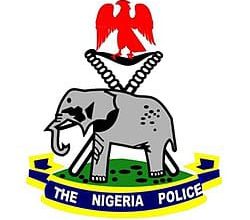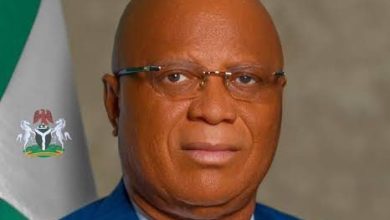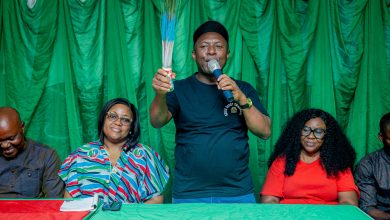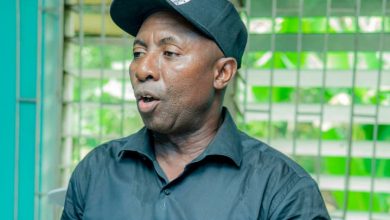Akwa Ibom: How PWDs Face Untold Frustration Accessing Public Facilities and Services Despite Disability Rights Law
- Mercy Obot reports on the challenges people living with disabilities (PWDs) face in Akwa Ibom State, despite available laws on inclusivity in Nigeria.
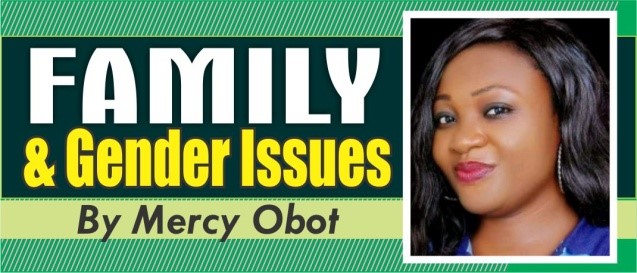
Uduakobong Bassey, a 33-year-old man who has grappled with societal discrimination since he lost his sight to glaucoma at age 15, was seen navigating his way with his white cane through the uneven pathway leading to the Ministry of Education’s Special Education Centre for Children with Special Needs at Mbiaobong Etoi, within the city of Uyo. Despite the hurdles, Bassey was willing to empower students at the centre with the art of soap-making and bleach manufacturing.
The only government-owned inclusive education centre in the state is accessible through an untarred road recklessly littered with stones and rocks due to the residual waste from the daily activities of Hensek Construction Company, a prominent engineering firm that handles most of the state’s road projects. The debris from the construction sites makes the entrance of the school look like a treacherous battlefield for children with disabilities.
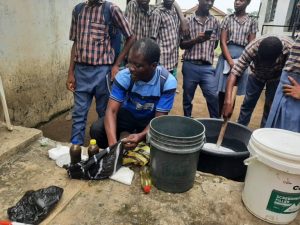
Despite the odds, Bassey, an alumnus of the institution, was determined to pursue his higher education, and this made him outstanding among his peers. Sharing his daily struggles with this reporter, Bassey recounted how the road leading to his former school is not disability-friendly, as he and his classmates, who are also visually impaired, have had multiple falls due to its precarious condition. He further emphasised that the deplorable situation gets worse when it rains.
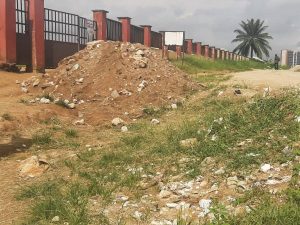
In his words, ‘’Have you seen how bad this road is? I’ve fallen on this road several times; even my classmates who are visually impaired have had such nasty experiences, but I’m not deterred. This is the price I have to pay for pursuing my education. We fall and get up because our dream is more important than this bad road. You see the things this company dumped on the road to our school; they’re not helping, coupled with the bad road. When it rains, the road floods and we fall anyhow.”
Beyond the poor state of the road, the school environment, which was last renovated years ago, now wears a faded outlook due to its ravages of age and abandonment. The ramps, meant to facilitate accessibility for students with mobility impairments, have cracked like fragments of a broken dream, while the upper interior of most classrooms is in deplorable condition.
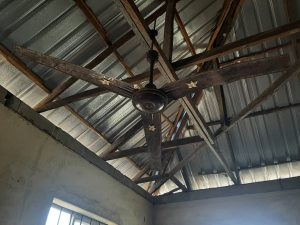
The ceilings are either damaged or completely missing, exposing some students with special needs to the scorching heat radiating from the sun or the icy cold from raindrops, making each of these classes unfavourable for effective learning.
Related: Ibesikpo Asutan Transition Chairman Honours Association of Persons Living With Disabilities
Through investigation, this reporter also found out that inclusive education in Akwa Ibom also lacked sign language interpreters, well-updated libraries, learning materials for the visually impaired, accommodation and feeding for those in boarding houses.
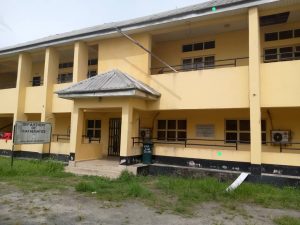
Consequently, Akwa Ibom State has an estimated 270,000 children with disabilities who require basic education, yet only a mere 10,000 are currently receiving educational support, according to a 2020 National Bureau of Statistics report.
It was also revealed by the NBS report that Akwa Ibom State had the second-highest number of out-of-school children, with a staggering statistic of 581,800 children.
Further, this reporter did surveillance on how accessible the Akwa Ibom State tertiary institution at Mkpat Enin was to persons with disabilities. She discovered that most lecture halls were on upper floors, making it difficult for people with physical impairments to access these classes.
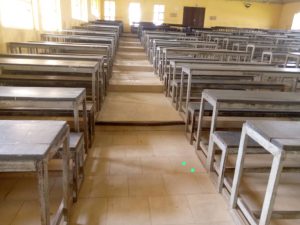
This was also applicable to the University of Uyo Town Campus, where most facilities and lecture halls were also not accessible to them. Additionally, the library has no braille books for visually impaired people, and there is no provision of sign language interpreters for individuals who have hard hearing impairments.
Speaking about the difficulties faced by people living with disabilities in the school environment, the former Public Relations Officer of the National Association of the Blind, Ubong Udo, described his experience as a student of Social and Anthropology Studies at the University of Uyo as traumatising.
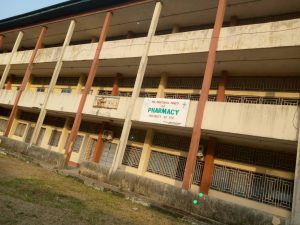
In his words, “As a blind person, there are numerous challenges we face in the school environment, such as accessing study materials like everyone else. Most Nigerian institutions do not consider the needs of people with disabilities.
“In the library, there are no braille books or texts available for individuals who are blind or visually impaired to read. Another issue is that lecturers expect blind students to perform at the same pace as their sighted peers, which is not feasible.
“Lecturers may lack the knowledge on how to effectively teach a blind student. They may enter the classroom and begin writing on the board without taking into account the needs of the blind student.
“In this situation, a blind person is recording, and if the lecturer is not reading what is on the board, the blind person’s recorder only picks up the sound of the marker or chalk.”
Ubong Ikpe, a former President of the National Association of Students for People with Disabilities at the University of Uyo, described the exclusive nature of most lecture halls as an “unpleasant experience.”
“As a wheelchair user, I faced challenges in accessing buildings at school because most lecture halls had stairs. I often had to be carried upstairs, which was not a pleasant experience. Sometimes, I was unable to go to the school library independently.
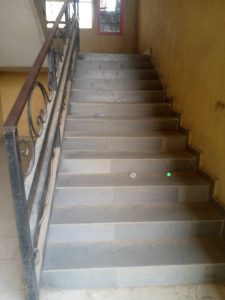
“Another student with a hearing impairment had to drop out because she had many failed courses due to the lack of sign language interpreters at the institution. She suffered as a result of this barrier.
“It is important to note that the activities of people with disabilities are financially intensive. As a special student, you end up paying more because you have to engage in extra activities to keep up with educational requirements, which can be financially draining.
“For example, while regular students may pay N100,000 per session, persons with disabilities (PWDs) may end up spending around N400,000 due to additional transportation costs. For instance, a blind student may need to hire a personal assistant to help with note-taking in classes, and a braille textbook can cost up to N50,000. Similarly, a deaf student may need to pay for an interpreter to understand the lectures given by professors.”
Read Also: Struck By Fate: Inside Special School Where Disability Students Learn In Termite-Infested Classrooms
Persons With Disabilities Trapped in Abject Poverty
According to the World Bank, people with disabilities are more likely to experience extreme poverty in Nigeria than those without a disability.
As of 2020, there were reportedly over 27 million Nigerians living with some form of disability, and currently, this reporter found out from one of the members of the PWD community that Akwa Ibom State is estimated to be at 2.5 million.
The World Health Organisation (WHO) reported in 2023 that 16% of the world’s population represented people with disabilities, and there were 1 in 6 people with disabilities.
Findings from the World Bank also show that unemployment rates among persons with disabilities are almost double those of the general population, owing to technological and physical barriers (lack of accessible workplaces), struggles in accessing expensive assistive devices, which limit the mobility of persons with disabilities, frequent denial of job opportunities, employers’ negative attitudes, inappropriate job placement, lower expectations at work, and a lack of reasonable accommodation.
In addition, research shows that PWDs in Nigeria can also be hindered by environmental, educational, and socio-economic factors, as well as human rights abuses, stigma, discrimination and violence.
Churches, Public Offices and Places not Accessible to PWDs
Aniekan Ekpenyong, a physically challenged individual who uses a wheelchair for mobility, is often unable to independently access the church building where he worships every Sunday due to the exclusive nature of the entrance.
“I encounter difficulties as a wheelchair user when waiting for public transportation to assist me in running errands. I have to wait for a sympathetic Keke Napep rider or minibus driver to give me a lift, which can take several minutes,” he told this reporter.
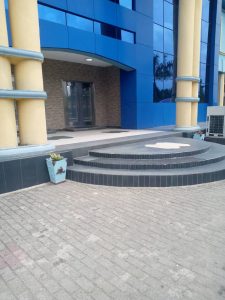
Unfortunately, Ekpeyong represents thousands of people with disabilities who face stigmatisation and marginalisation in church gatherings, public services, and even public buildings in Akwa Ibom State.
During a tour conducted by this reporter to investigate the accessibility of churches in Akwa Ibom State to the PWD community, particularly in the state capital, it was found that most prominent churches were not accessible to wheelchair users. Additionally, none of the churches had sign language interpreters for individuals with hearing impairments, and there was limited provision of facilities to accommodate people with vision impairments.
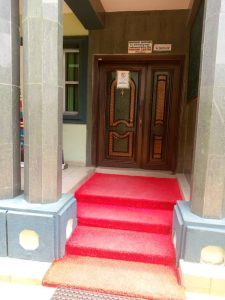
Out of the twelve (12) prominent orthodox and Pentecostal churches surveyed in Uyo, only two, Dunamis International Gospel Centre at Ikpa Road and Insight Bible at Nsikak Eduok Avenue, had ramps for wheelchair users.
The other ten churches that seemed to have unintentionally excluded individuals with mobility challenges by not having accessible ramps are: Power City International on Nwaniba Road (there is a ramp, but the entrance is blocked); The Apostolic Church on Obio Imo Street and Oron Road branch; Qua Iboe Church on Ikot Ekpene Road and Olusegun Obasanjo Way; and the All Nations Christian Ministry International, Eket, founded by Governor Umo Eno.
Additionally, churches such as the Methodist Church, Immanuel Cathedral on Oron Road, Full Life Christian Centre on Nsikak Eduok Avenue, ECKANKAR on Nsikak Eduok Avenue, Church of God Mission on Enen Afaha Street, Living Faith (also known as Winners Chapel) in Ikot Ebido-Oku, and The Redeemed Christian Church of God in Uyo were also not accessible to the community of people with disabilities.
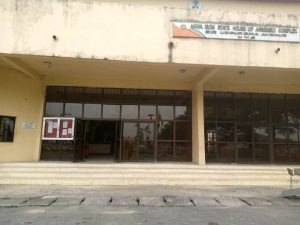
Apart from the churches, exclusion was also observed in most public infrastructure in the city of Uyo. This included government offices (the offices of the Deputy Governor, Head of Service, and Secretary to the State Government), the State House of Assembly, the State Secretariat, eateries, hotels, and supermarkets, among others.
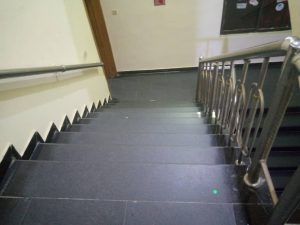
Some of the features that indicated this exclusion included the absence of accessibility ramps for those with mobility challenges, the lack of sign language interpreters for the deaf community, and the limited provision of audio and facilities to accommodate people with vision impairments.
Read Also: Disability Bill: AKHA Deputy Leader Optimistic of Governor’s Assent
PWDs Face Hurdles in Accessing Public Transportation
Tragically, persons with disabilities (PWDs) are often neglected by Keke napep riders or minibus drivers due to their disabilities. Mr. Ekpenyong revealed the inequality that he faces on a daily basis when using public transportation vehicles.
“I face difficulties as a wheelchair user when waiting for public transportation to help me run errands. I have to wait for a sympathetic Keke Napep rider or minibus driver to give me a lift, which can take several minutes,” he said.
Ubong Udo, a visually impaired person, describes the attitude of riders and drivers in Akwa Ibom as “stigmatising.”
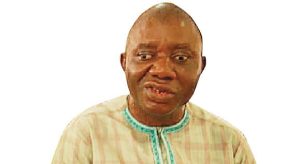
He explained, “Recently, a Keke napep rider noticed that I was blind and immediately drove away. I felt frustrated and disappointed.
“I think the drivers assume that a blind person doesn’t know where they are going, which creates obstacles and barriers for us in transportation,” he lamented.
In a similar assertion, UduakObong Bassey says he also experiences difficulty accessing public transport, which is why he goes late to school on a daily basis.
“I have to wait close to 30 minutes or one hour to be able to access a driver who will take me to school; this is what I face on a daily basis, and as a result of this, I go late to school because of this challenge.”
In response, a public transportation worker, who spoke on condition of anonymity, explained to this reporter why he usually refuses to stop for wheelchair users.
He said, “I don’t like carrying individuals who are physically challenged because they end up occupying spaces meant for two individuals and also take longer to get off the public vehicle.”
Similarly, Mr. KufreAbasi, who is also a vehicle operator, stated that he can only accommodate a person who uses a wheelchair if the person has enough money to pay for two seats. When asked if he is aware of the National Disability Law, he actually said he is not aware of such a law.
Barriers in Financial Institutions
People with disabilities also face discrimination and prejudice at financial institutions. For example, Mr. Udo revealed that some banks in Akwa Ibom State are requiring blind individuals to obtain permission from a magistrate court before being issued an ATM card. Udo stated that this practice goes against national disability laws.
“I was given a bank form to meet with a lawyer to sign before my ATM card could be given to me. However, a week later, I travelled to Lagos, and, surprisingly, when I went to the branch of the same bank in Lagos, I was given my ATM card in less than one hour.
“Why is the same bank asking blind people in Akwa Ibom State to go to court for permission to get an ATM? Their action goes against the National Disability Law, which states that if a blind person asks bank officials for an ATM or online banking, they should grant their request.
“The bankers said they were following instructions, and all my protests and explanations fell on deaf ears.
“Additionally, as a blind person, one must rely on a stranger to enter their PIN at the ATM to withdraw money, which can be risky. Wheelchair users also experience discrimination as they are forced to remain outside to sign their chequebooks due to a lack of accessibility to banking halls.”
Disability Law Yet To Be Domesticated In Akwa Ibom State
Akwa Ibom State is among the few states yet to domesticate the national disability bill introduced by the former President, Muhammadu Buhari, in 2019.
In the past years, a couple of attempts were made by lawmakers in the state to domesticate the disability bill into law, but the State Governor did not accent it.
Meanwhile, the bill aimed at preventing discrimination against persons with disabilities was reintroduced on the Akwa Ibom State House of Assembly floor by Uduak Ekpo-Ufot of Etinan State Constituency.
The bill successfully passed its second reading on March 21, 2024, and was followed by a public hearing, marking a significant step towards promoting inclusivity and protecting the rights of persons with disabilities in the state.
Speaking to this reporter, Otobong Bob, the Deputy House Leader of the Akwa Ibom State House of Assembly and member representing Nsit Ubium State Constituency, expressed optimism that the bill will receive the State Governor’s approval when passed.
In his words, “As a responsible Assembly, we are confident that the disability bill will receive executive approval after the Legislature passes it into law.”
Bob, who is a co-sponsor of the bill, added that the state governor has recently approved many private member bills, and they are hopeful that this specific bill will be signed into law.
He emphasised the necessity for the law to be implemented in the state, stating that “once passed, it will improve access to public facilities, especially government buildings, for persons with disabilities.”
The Discrimination against Persons with Disabilities (Prohibition) Act 2018 provides for the full integration of persons with disabilities into society, including access to physical structures, road transportation, seaports, railways, airport facilities, opportunities for employment, and participation in politics and public life.
Inclusivity of PWDs by the State Government
In an interview, the Personal Assistant to the Governor on Persons with Disabilities (PWDs), Comrade Ubong Ikpe, stated that the state governor has included PWDs in his ARISE agenda.
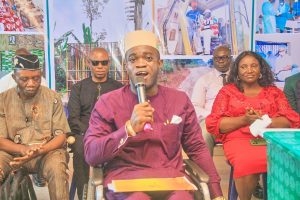
“It is no longer news that the Umo Eno-led administration is running an inclusive government. This is the first administration that has appointed an aide to the Governor on Persons with Disabilities at the state level after 36 years of statehood,” Ikpe said.
He further added, “The present administration is also running a practical inclusion of PWDs because eighty (80) percent of the ARISE Agenda policy of the Governor impacts on disabilities in the state, especially the Social Register, which aims at providing food for the vulnerable, and PWDs are inclusive.”
Ikpe mentioned that the state government has provided a N100 million educational intervention for students with disabilities, as well as provisions in the health and agriculture sectors, and has initiated a social register that ensures some persons in the PWD community are given free food items.
However, Ubong Udo, another representative of the PWD community, claimed that many people were still experiencing ongoing poverty because the government frequently relied on non-disabled individuals to oversee their welfare.
“We are still living in an era where the government is unsure of what to do. They only gather us during the International Day for Persons with Disabilities celebrations and provide us with Coca-Cola, rice, and four or five thousand Naira for transportation fare to go back home at the end of the event,” Udo said.
Udo emphasised: “The type of inclusion we need is empowerment that will enable us to achieve financial independence, provide quality education for our children, and create a better living environment for ourselves.”
What Accessibility/Inclusivity Means to PWDs
According to Joy Ubong, a social inclusion advocate for persons with disabilities, accessibility does not only mean the ability to gain access to a building but also how comfortable and acceptable the person will be inside the complex.
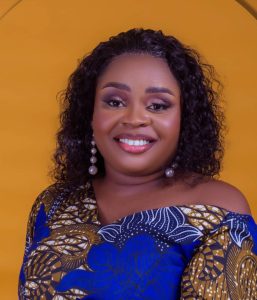
“Access to people who are physically challenged is different from what access means to a deaf or blind person,” Ubong noted.
Miss Ubong, who is a physically challenged individual, admonished the government and private individuals to ensure that there are accessible ramps in educational institutions by reforming lecture halls, strategically placing sign language in different institutions, and implementing universal design on roads that will accommodate visually impaired persons.
She also emphasised the importance of providing PWDs with access to information and empowering them financially.
On the topic of inclusivity, the social advocate said, “We are talking about an inclusive society where everybody has the ability to interact with each other on an equal basis without hindrance.”

